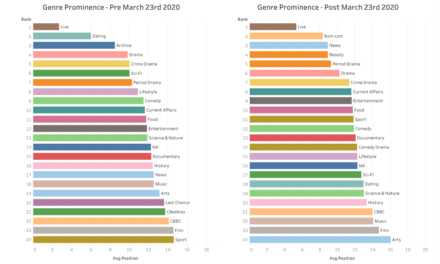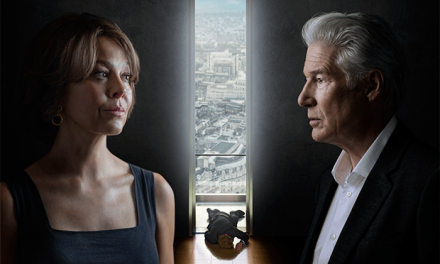The recent furor about Oskar Eustis’ open air production of Shakespeare’s Julius Caesar in New York City in which Caesar was dressed up to look like Donald Trump and Calpurnia had a Slavic accent started me thinking about the larger issue of imaginatively representing the current occupant of the White House. There is an obvious desire to reflect on the terrible plight of America under the Trump administration through humor and storytelling, and our friends around the world support that inclination. The other day, British novelist Howard Jacobson published an op-ed in the New York Times, avowing that it is crucial that we mock him publicly in every way we can. I don’t know if Jacobson is aware that we have already amassed a treasure trove of cartoon art that is effectively on point and continues unabated. But the Central Park Julius Caesar is one more indication that we are unable to find the right narrative for the job. In sharing my thoughts about this, I will need to take liberties with the mandate of CST Online to study television. I hope you will pardon and indulge me. I assure you that I will bring these ramblings home where they belong to our medium of choice.
It so happens that I saw Eustis’ Caesar on a beautiful evening with a full moon shining on the old tale of indignation, assassination, and regret. Neither I nor my husband think it was a good production. If the intentions were strong, the acting and directing were weak. So was the satire. Neither of us feel that this spectacle of a Trump lookalike lying in a pool of stage blood cast any light on the current occupant. Caesar isn’t an appropriate metaphorical surrogate for Trump. Caesar was a brilliant man, a soldier and a historian; he was more than competent; and he wasn’t a liar, or at least not the kind who couldn’t help himself, a pathological victim of his own ignorance and innate feelings of worthlessness. He made an excellent foil for Brutus, the true hero of the play, because what really interested Shakespeare was that the worst thing about dictators is what they do to men of conscience. Caesar as Trump diminished Brutus, skewing the focus of the play toward sophomoric humor. It was a trick, a ploy, a novelty. The out-of-proportion, hysterical protest of the thick-headed right wing against the production could only have happened because their fury was devoid of understanding that Eustis came nowhere near to telling a story about the monstrously pathological, undistinguished failure that is Trump. But I have not phrased this correctly. When a person as insignificant in himself as Trump rises to a level of immense, significant power it isn’t his story, is it? Cast your eyes on the bigger picture, please.
In the United States, we have a penchant for the small picture, we like to imagine monsters as masterminds, probably because our cult of the individual can’t bear the reality that there is such a thing as an inconsequential monster, as Trump is, a man whose power is the result of context, circumstances. Our mass media are not big on stories of men propelled by forces other than their own, stories that are oblique tales of a rotting context, not simple direct narratives about a potently dangerous ruler. We want direct narrative about a man (probably) standing in the spotlight, possessed of clear and precise motivations and a herculean ability to enforce his will; even better, let him have a complex and fascinating thought process. Interestingly Caesar, who was all that, was nevertheless condemned to be a peripheral character, an excuse for Shakespeare to focus on the group of men who fell into one mistake after another, believing that they had the right and the duty to take action against a perceived threat to the Roman republic, and on the seething, easily manipulated mass of the Roman population. In a word, to focus on Caesar’s context.

The character of Caesar – who was made to look similar to Donald Trump – is pictured being stabbed. Image Credits: Inside Edition
The same impulse that made Eustis put a blonde wig and a red tie on actor Greg Henry and shove him into the spotlight, leaving the real core of the play somewhere on the periphery and in the shadows, has misled some entertainment journalists and some audiences to think they have found a spot on representation of Trump in grand, dashing, sexily villainous Frank Underwood (Kevin Spacey), the protagonist of Netflix’s series, House of Cards. Even the cast has been making noises to that effect. The series first began streaming in 2013, the innocent Pre-Trump days of yore, as an adaptation of the British television mini-series that mocked Thatcherism using Richard III and Macbeth as its inspiration. (Oh yes, Shakespeare could take a direct look at trouble in high places.) It’s not clear what kind of American political edge showrunner Beau Willamon had in mind. Or maybe he had nothing in mind but getting his name in lights. He didn’t seem to know what to do with his show in the second season, once he had borrowed all he could from the British original. But he has persisted long enough that now, in the wake of the recent election, Underwood is being regarded as a metaphor for Trump.
Trump? Seriously? Underwood is a master strategist, played by an actor who is a strikingly intelligent onscreen presence with a gravitas that cannot be cut by even the blade of King Arthur’s invincible Excalibur. Underwood is conceived most compellingly when he faces the camera and confesses to the inner workings of his mind, inviting us to watch and admire as he plays one person against another so that he can emerge as a virtual tyrant within a system of government built on checks and balances that have suddenly become his own personal power levers. In some ways, Underwood is equally fascinating for his attitude toward strong women. He has a strange, intense relationship with his wife Claire (Robin Wright), a woman who is his match in ambition and intellect. This is hardly a metaphorical lens on Trump, a man incapable of completing a full sentence, who has no concept of past or future, let alone strategy and roams the jungle as an opportunistic womanizer, barely conscious of the actual woman on whom he has designs and oblivious to his trophy wife. The saga of Frank and Claire Underwood is a completely different story, a story of evil to be sure, but not a story than can hold up the mirror to our lives. It can only confuse the issue for anyone who accepts the analogy.
In the AMC television series, Craig Silverstein’s Turn: George Washington’s Spies, a show that has been given much less play in the media, there is a villain who might better, in some ways, be equated with Trump, Lieutenant John Simcoe (Samuel Roukin). But if he is somewhat closer to Trump in temperament, there are good reasons why no one has suggested that he is our Trump surrogate. Simcoe is a British soldier of bizarre Trumpian heterosexual perversity, with a Trumpian penchant for power, who, like Trump, lacks all empathy, but he is also shrewd and focused, a far cry from the creature of moods in the White House who springs to attack before he has any idea what he is attacking, why, or how he will do it. But even more important, as antagonist for the decent American patriots who are struggling to birth what will become the United States, Simcoe is an evil external to the American experience, a remnant of the British tyranny the colonists left behind, while Trump is the face in the mirror, the dark side of the now, of the individualists we pride ourselves on being. He is our worship of individualism brought to an unthinking fever pitch of intensity that babbles for want of a proper acquaintance with our common language and cultural inheritance, a grabbing hand whether for “pussy” or money that satirizes the American value of tenacity in goals and the motivation to succeed no matter the obstacles. So let’s look away from Simcoe too.
Arguably, in seeking a way to tell our story we might turn to Pablo Larrain, an outstanding Chilean filmmaker, who has written and directed a trilogy of films about Augusto Pinochet, another politically toxic non-entity, using radically oblique storytelling methods. In Tony Manero, his most accomplished film, Pinochet never appears and, if memory serves me correctly, his name is not even mentioned. Rather, Larrain conveys the tragedy of his dictatorship through what has happened to ordinary life on the streets of his country, in other words the tragedy of the context. Larrain’s focus is on the stealthy evil of Raúl Peralta (Alfredo Castro), a violent homicidal maniac who is, in seeming contradiction, at the same time an incompetent, sexually lacking, undistinguished man. As the story goes, Peralta’s lack of personal substance motivates his escape into an alter ego, Tony Manero, the hero of Saturday Night Fever, which should not be but becomes bloodthirsty in nature, and Larrain plays out the grandiosity of that borrowed identity as a very subtle, complex—and shattering–political parable. I can’t help thinking that kind of oblique satire is our best option. The figure of Julius Caesar is so distant, and thus so reassuring as we think of political mayhem, so escapist in nature, as are the ghosts of Macbeth and Richard III at the core of House of Cards and the spectre of Simcoe. We can only be fascinated by their images as distractions from the snake curling at our feet—not enlightened. Raúl Peralta draws our attention to our feet and overwhelms us with a shock of recognition transformed brilliantly for the audience’s imagination.
If Trump can happen here, why not political television with an impact? There have to be a myriad of ways to achieve it. And I will imagine a couple of possibilities to get the ball rolling. How about a made-for-TV film, or a mini-series or, preferably, a full scale series about a person, woman or man, who brings the horror right into our homes through an identification that grabs us by the throat? What if the extended narrative structure of the series gives us ample time to consider how our protagonist, in search of the American dream of success, slowly comes to believe that serving a Trump-like president would be an excellent vehicle for his/her ambitions, even though he/she would be enabling a dangerously clownish, malignant idiot? What if our hero’s success in ingratiating this president with an even more malignant and stupid mass of Americans slowly compels him/her to look inward at his or her own interior pollution of which Trump is only an external reflection? A kind of variation on Oscar Wilde’s The Picture of Dorian Gray. Would some fictional doppelganger of Kellyanne Conway, Trump’s current Counsellor, for example, be our girl, re-imagining success through the story of a not very talented but sufficiently skillful and tenacious American hustler in a television series called Donald Trump? (Wait, we should be a little less on the nose; how about calling it Ronald Mumps?)
Or would the right agent at the heart of the narrative be a television comedian whose fortunes—immense wealth and fame, as well as popular respect as an American icon of decency–are tied to his ability to savage some version of a President Mumps for the pleasure of a passive electorate? What if this man were of impeccable moral character, sparkling intellect, and unsullied intentions? And what if his story was about a growing, complex fear on his part that his satire is normalizing Mumps and that he may even be keeping Mumps in power by stabbing him in the marketplace five nights a week except during the hiatus period when gets to recharge his batteries? What if the noblest American of them all, the people’s hero, is ironically a bulwark of Trump’s reign of terror?
Julius Caesar, Frank Underwood, and Lieutenant Simcoe keep the current travesty of American democracy at bay, distant, almost peacefully antique. But if a character the likes of Stephen Colbert becomes our Brutus, the enchanting, incandescent Brutus/Colbert………. I can’t help thinking that if the art of narrative is to come to our rescue, it must help us to think the unthinkable and what better venue for that but commercial entertainment, if we are to reflect on this unimaginable reality we are suddenly facing? Do we not need the guts to tell that story in the mass medium of television as an attack on our complacency before we completely lose our civil liberties, our environment, our health care? What else but a rough beast slouching toward HBO, CBS, NETFLIX, and AMAZON can properly shake us and release us from paralysis?
Martha P. Nochimson’s 26 year career as a University Professor of film and literature is only part of her story. In addition to the pleasure she has taken at being in the classroom at Mercy College and the Tisch School of the Arts at New York University, she has worked as an editor for Cineaste magazine, written for American television, and has had the privilege of being in long running conversations with both David Lynch (25 years and counting) and David Chase (ten years and counting). She has published six books and is about to start work on Inner Tube: Television Beyond Formula for the University of Texas Press.






